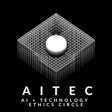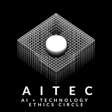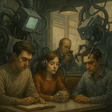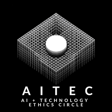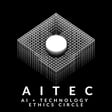
#8 Muriel Leuenberger: Track Thyself(?)
Muriel Leuenberger is a postdoctoral researcher in the Digital Society Initiative and the Department of Philosophy at the University of Zurich. Her research interests include the ethics of technology and AI, medical ethics (neuro-ethics in particular), philosophy of mind, meaning in life, and the philosophy of identity, authenticity, and genealogy. Today we will be discussing her articles “Technology, Personal Information, and Identity” and “Track Thyself? The Value and Ethics of Self-knowledge Through Technology”—both published in 2024.
Some of the topics we discuss are the different types of personal information technology, narrative identity theory, and the effects that personal information technology can have on our personal identity (positive, negative, and ambiguous)—among many other topics. We hope you enjoy the conversation as much as we did.
For more info on the show, please visit ethicscircle.org.
